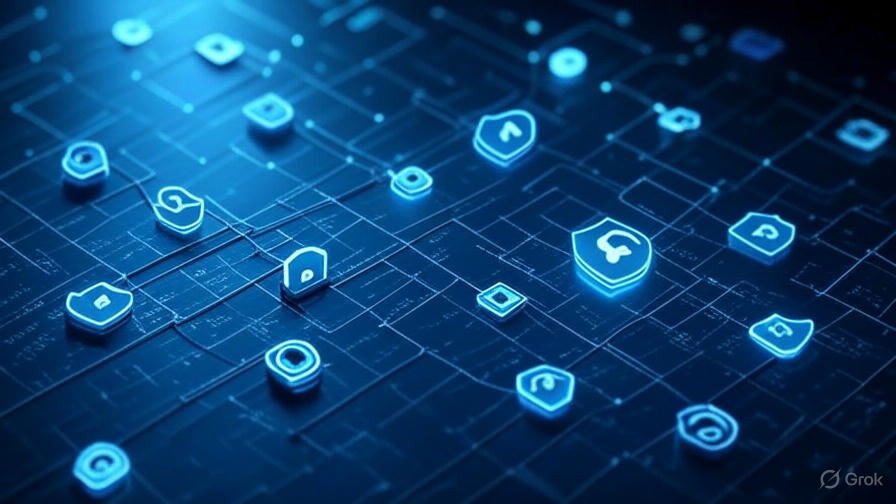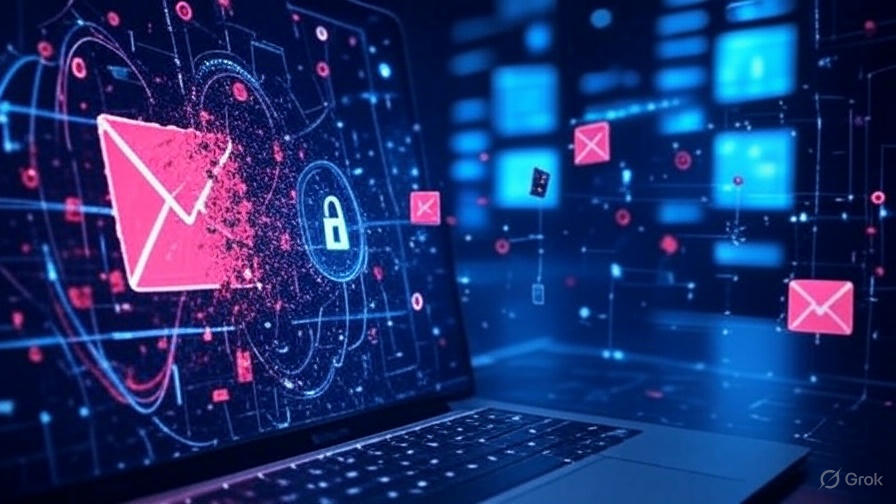The 5 Biggest Data Breaches in History and What We Learned

🛡️ Executive Summary: Key Points
- The Threat: 3 billion accounts compromised in Yahoo alone. Massive breaches aren't science fiction—they're recurring reality affecting giants with unlimited resources.
- The Risk: Your information is exposed even in services you never used. Equifax leaked data from 147 million people who weren't direct customers.
- The Impact: A reused password on LinkedIn can empty your PayPal. Attackers test stolen credentials across all your services through credential stuffing.
- The Immediate Solution: Verify now if your accounts were compromised, use unique passwords with a manager, enable 2FA on all services, and minimize public data on social networks.
Three billion. That's the number of accounts compromised in the Yahoo breach alone. This isn't a figure from a sci-fi movie—it's a reality that proves an uncomfortable truth: no company is infallible.
In previous articles, we discussed how to protect your email and your passwords. Today, we'll dive into the real-world cases that demonstrate why that protection is vital. These are the stories of the biggest digital disasters and the valuable lessons we can learn from others' mistakes.
1. Yahoo (2013-2014): The Digital Titanic
The Disaster: Every single Yahoo account—3 billion users—was compromised in multiple attacks between 2013 and 2014. Names, email addresses, birth dates, phone numbers, and most critically, unencrypted security question answers were leaked.
The Consequence: Yahoo concealed the true magnitude of the attack for years. It wasn't until 2016 that they publicly admitted the first breach, and in 2017 they acknowledged it affected ALL existing accounts. This delayed revelation eroded user trust and reduced Yahoo's sale price to Verizon by $350 million.
🎓 Key Lesson: Companies won't always warn you on time. Your security is your responsibility. Don't wait for a notification that may never come or arrive years late. Periodically verify if your data has been exposed.
2. LinkedIn (2012 and 2021): Your Resume on the Black Market
The Disaster: In 2012, 6.5 million encrypted passwords were stolen and published on Russian underground forums. But the real blow came in 2021, when data from over 700 million users (92% of the total base) was "scraped" through mass extraction techniques and put up for sale for $5,000.
The Consequence: Although LinkedIn claimed there was no "technical breach" in 2021, the exposed data included emails, full names, locations, phone numbers, and links to social profiles. The 2012 passwords, though encrypted with SHA-1, were cracked within weeks due to the algorithm's weakness.
🎓 Key Lesson: Never reuse passwords. Attackers take credentials from one breach and systematically test them on other services (Gmail, Amazon, your bank) through credential stuffing. A stolen LinkedIn password can end up draining your PayPal account.
3. Equifax (2017): When They Steal What You Never Gave Them
The Disaster: Ultra-sensitive financial information from 147 million people (mainly in the US, Canada, and UK) was exposed, including full names, birth dates, addresses, Social Security numbers, driver's license numbers, and in some cases, credit card data.
The Consequence: The cause was a known vulnerability (CVE-2017-5638) in Apache Struts, their website framework, which Equifax failed to patch for two months despite having the patch available. Attackers had access for 76 days. The total cost to Equifax exceeded $1.4 billion in legal settlements and fines.
🎓 Key Lesson: Your digital identity is at risk even with companies you never interacted with. Equifax is a credit bureau that collected your data without your direct consent. Protecting your identity isn't paranoia—it's basic prevention in a world where your information circulates without your permission.
4. Adobe (2013): When "Hints" Betray You
The Disaster: Data from 153 million accounts was stolen, including emails, passwords encrypted with the weak 3DES algorithm, and catastrophically, password "hints" in plain text.
The Consequence: Attackers used these hints ("your first pet's name," "city where you were born") to deduce actual passwords, making encryption completely useless. Additionally, they discovered millions of users had identical or very similar passwords, revealing predictable patterns.
🎓 Key Lesson: Security questions are a critical weak point. Don't use real data as answers. Treat them like a second password and enter random answers only you know (and save in a password manager). "Fluffy" isn't a secure answer if your pet appears on your Instagram.
5. Facebook (2019): The Price of Being Too Public
The Disaster: A defective configuration in Facebook's API allowed attackers to collect phone numbers and personal data from over 530 million users across 106 countries, which ended up published for free on a hacker forum.
The Consequence: The data included full names, locations, birth dates, bios, and crucially, phone numbers linked to accounts. This information fueled massive waves of smishing scams (phishing via SMS) and extremely convincing fraudulent calls because scammers had your complete context.
🎓 Key Lesson: Be aware of the data you share on social networks. Regularly review your profile privacy settings and share only what's strictly necessary. Sometimes, just your full name, city, and workplace is enough for an attacker to build a lethal social engineering profile.
How to Protect Yourself: Lessons Applied Today
All these breaches share a pattern: they occurred at giant companies with million-dollar budgets, the data became public (or was sold), and users found out late or never. The good news is that the lessons can be summarized in five concrete actions you can implement in the next 30 minutes:
- Verify if your accounts have been leaked: Use a trusted verification tool to discover if your emails appear in known breach databases.
- Implement unique passwords with a manager: A password manager is your best ally. If one account falls, the others remain safe because each has its own impossible-to-remember key.
- Always enable two-factor authentication (2FA): It's the security lock that stops thieves even if they have your password. Prioritize authentication apps over SMS when possible.
- Replace real security answers with random ones: Treat security questions like secondary passwords. Instead of "Fluffy," use invented answers like "XK9m#PurpleElephant" and save them in your manager.
- Audit your public digital footprint: Review what personal information is visible on your social networks. Less public data = less attack surface for social engineering.
💡 Recommended Resource
Want to know if your email has already been compromised? Use our free verification tool and discover in 30 seconds if you appear in any known breach database.
Don't Be the Next Statistic
Data breaches will keep happening. The question isn't whether there will be another massive leak next year, but whether you'll be prepared when it happens and your information is floating on the black market alongside millions of other victims.
The difference between being a statistic and being a protected user comes down to the decisions you make today. The five breaches we analyzed affected over 4.5 billion combined accounts. Most of those people trusted that companies would protect their data.
That trust was betrayed.
Now you know your security can't be delegated. Implement the five actions we shared, regularly verify your accounts' status, and stay informed about new threats.
🔔 Stay Protected
Subscribe to our newsletter and receive alerts about new breaches, critical vulnerabilities, and practical tips directly in your email.
Subscribe for FreeFrequently Asked Questions
What was the largest data breach in history?
The Yahoo breach (2013-2014) affected all 3 billion existing accounts, compromising names, emails, birth dates, and security question answers. The company took years to reveal the full magnitude of the attack: it wasn't until 2016 that they publicly admitted the first breach, and in 2017 they acknowledged it affected ALL accounts. This delayed revelation reduced Yahoo's sale price to Verizon by $350 million.
What is credential stuffing and how does it affect me after a breach?
Credential stuffing is an automated attack where hackers take stolen passwords from a breach (like LinkedIn's 6.5 million in 2012) and systematically test them on other services like Gmail, Amazon, PayPal, or your online banking. That's why using unique passwords on each platform is critical. A reused password means a single breach compromises all your accounts simultaneously. Attackers can test millions of combinations in minutes using bots.
How can I find out if my data was exposed in any of these historic breaches?
Use specialized breach verification tools that query databases of known breaches like Yahoo, LinkedIn, Adobe, Equifax, and Facebook. Enter your email and you'll discover which breaches your information appeared in, the incident date, and what specific data was compromised. If you appear, you must immediately change passwords for that service and any others where you've used the same key, enable two-factor authentication (2FA), and monitor suspicious activity in your accounts.
How to protect yourself after a data breach
Step-by-step guide to secure your accounts after discovering your data was exposed in a breach
Verify if your accounts were compromised
Use a trusted breach verification tool to check if your email or personal data appears in known breach databases.
Change all affected passwords
If your account appears in any breach, immediately change the password for that service and any others where you've used the same password.
Implement unique passwords with a manager
Install a trusted password manager and create unique, complex passwords for each service. This prevents one breach from compromising multiple accounts.
Enable two-factor authentication (2FA)
Enable 2FA on all your critical services: email, online banking, social media, and work services. This adds an additional layer of security.
Monitor suspicious activity
Regularly review recent logins to your accounts and set up alerts for unusual activity. Report any unauthorized access immediately.
🛡️ Protect Your Digital Security
Free tools related to "The 5 Biggest Data Breaches in History …"
Secure Password Generator
Create unhackable passwords instantly
Email Breach Checker
Find out if your email was compromised in any data breach

